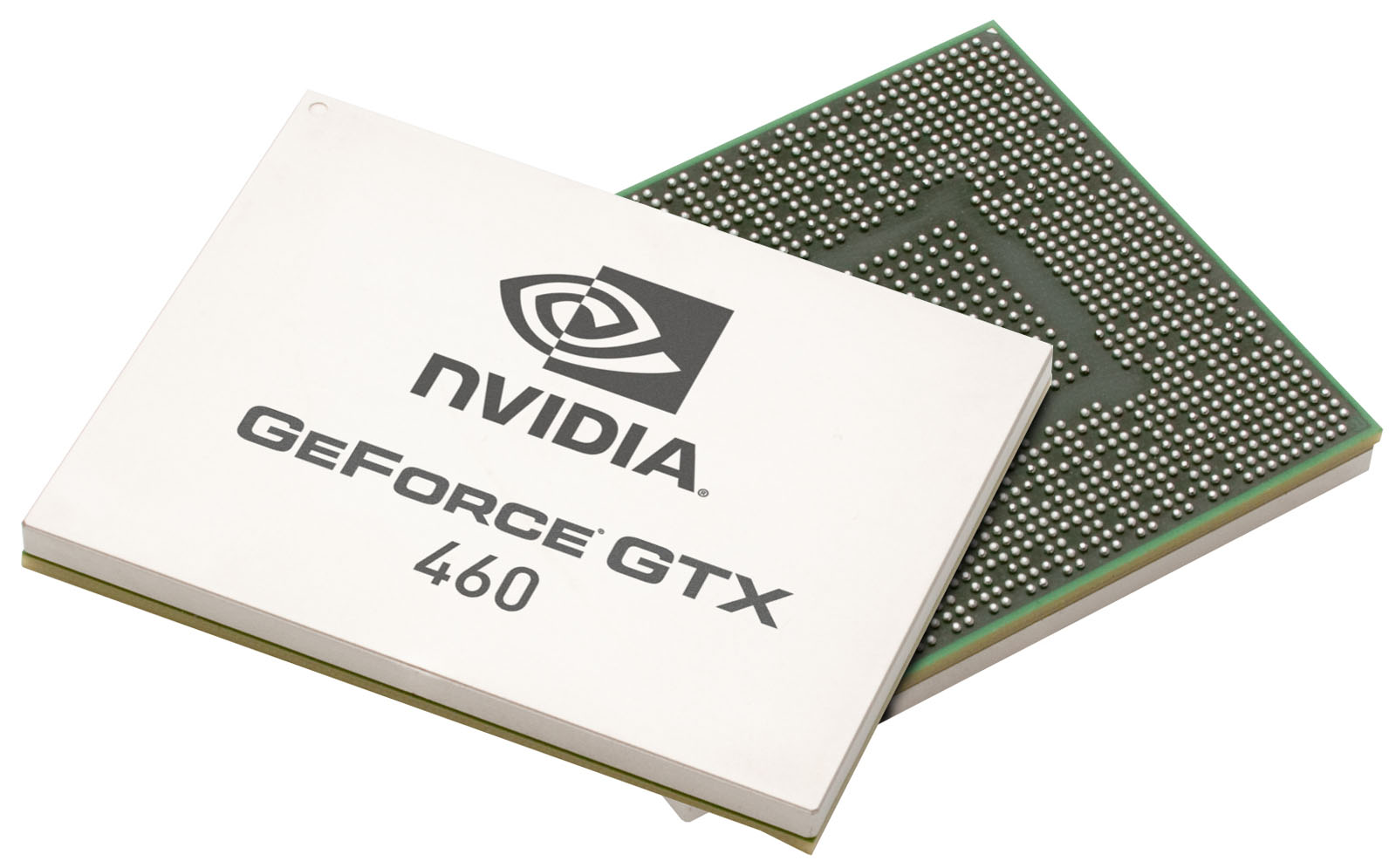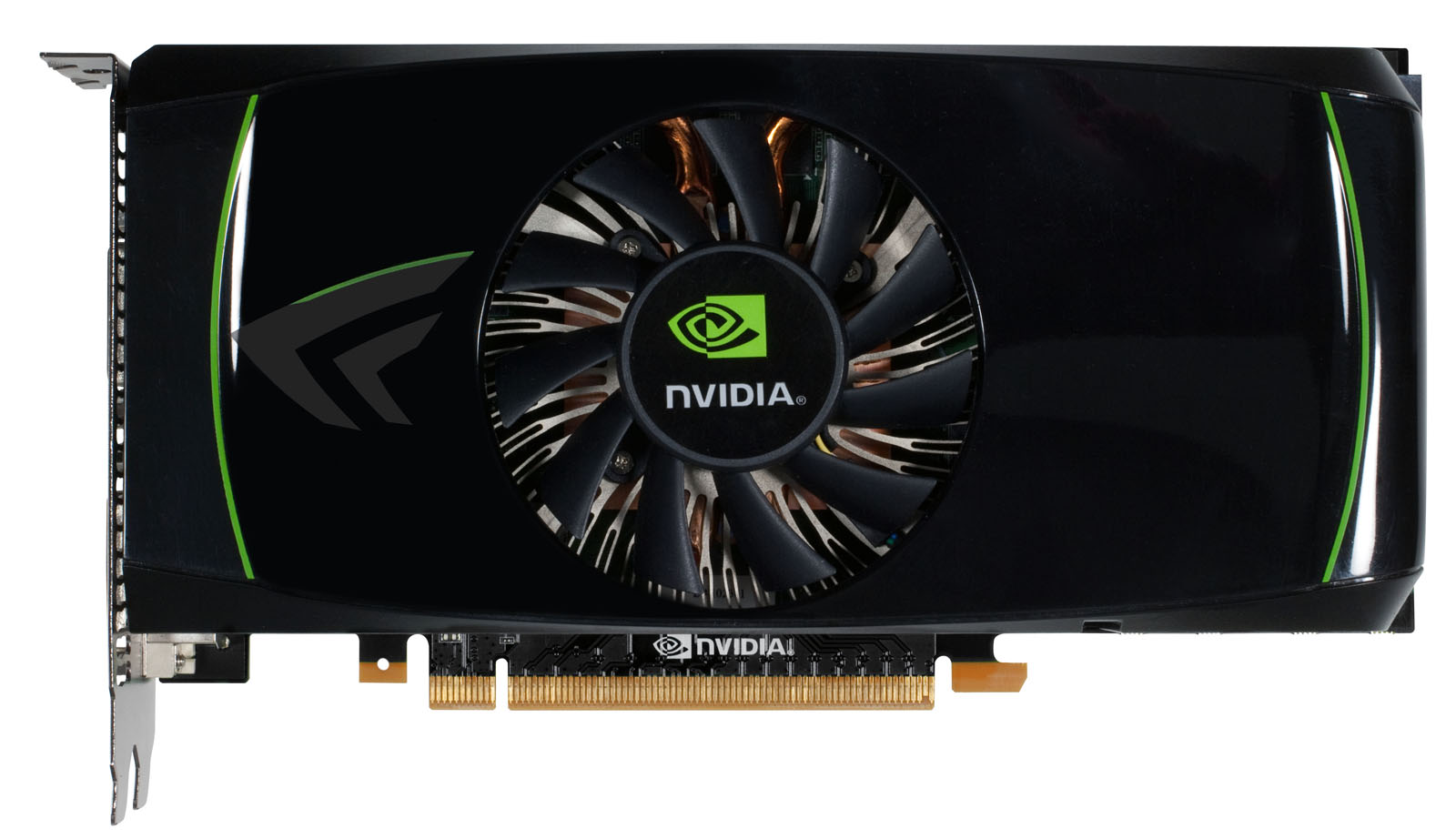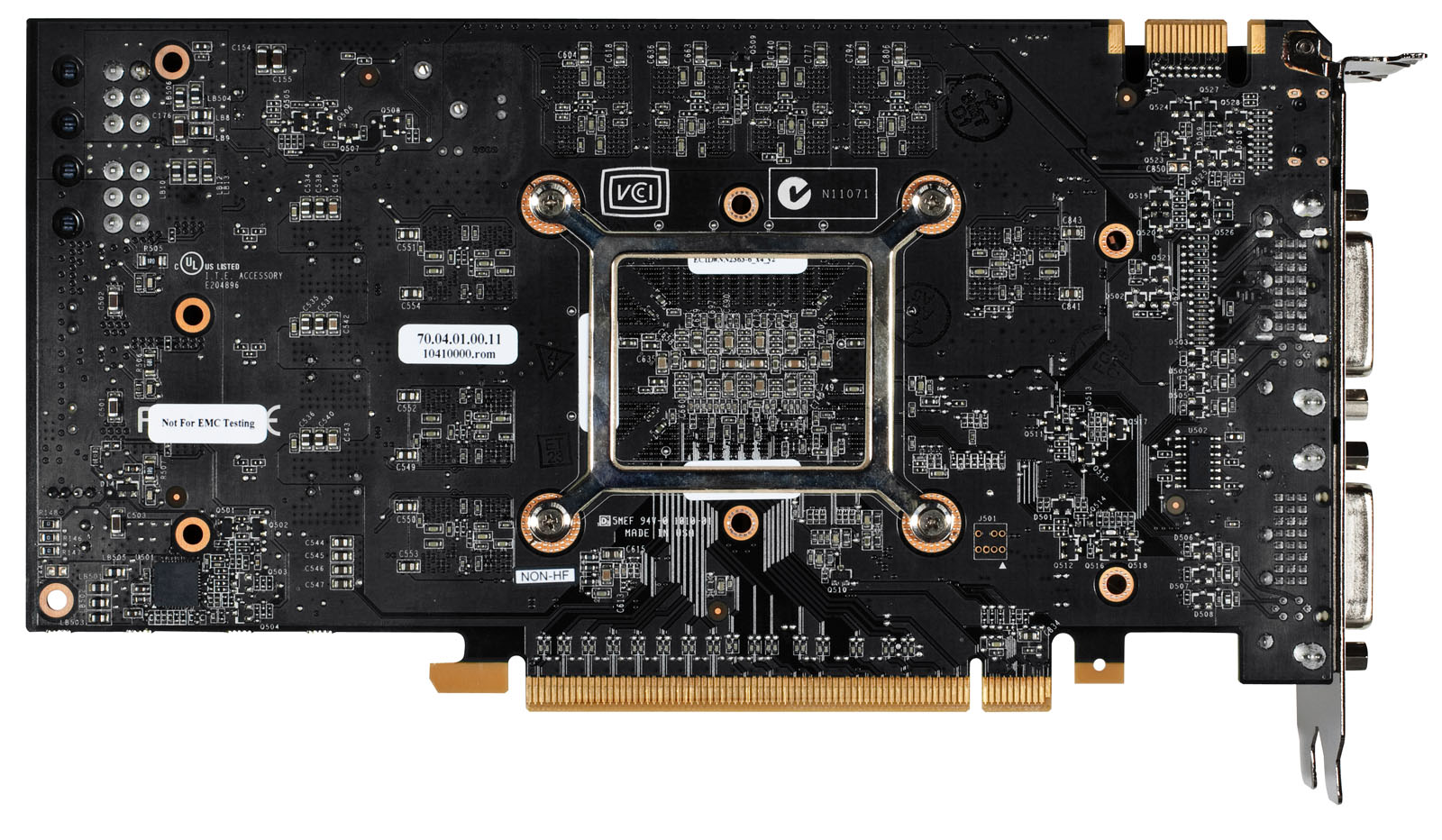Nvidia GeForce GTX 460: The Fermi We Were Waiting For
GF104: In Practice With GeForce GTX 460
Now, all along I’ve been talking about GF104 in its pure, unadulterated form. But as with GF100, Nvidia is turning bits and pieces off along the way—whether to improve yields or keep from blowing GeForce GTX 465 completely out of the water, we aren’t told why.
The GeForce GTX 460 1 GB arrives with seven of eight SMs enabled, cutting available CUDA cores to 336 and texture units to 56. Nvidia’s GeForce GTX 460 768 MB employs the same configuration, wielding 336 cores and 56 TMUs.
Once you get past the front-end, these two boards start to look a little different. The 1 GB version gets to use all four of its ROP partitions, outputting up to 32 pixels per clock, benefiting from a full 256-bit bus, and enjoying a full 512 KB of L2 cache. Meanwhile, the 768 MB card makes do with three of four partitions, slimming down to 24 of what Nvidia calls ROP units, a 192-bit bus, and 384 KB of L2 cache.
Nvidia doesn’t do anything else to try to differentiate these cards though, which I think is good news. That means the clocks are similar: fixed-function units run at 675 MHz, the shader cores run at 1350 MHz, and the GDDR5 memory employs a 900 MHz clock (resulting in a 3600 MT/s data rate).
| Header Cell - Column 0 | GeForce GTX 460 | GeForce GTX 465 | GeForce GTX 470 | GeForce GTX 480 |
|---|---|---|---|---|
| Graphics Processing Clusters | 2 | 3 | 4 | 4 |
| Streaming Multiprocessors | 7 | 11 | 14 | 15 |
| CUDA Cores | 336 | 352 | 448 | 480 |
| Texture Units | 56 | 44 | 56 | 60 |
| ROP Partitions | 4/3 | 4 | 5 | 6 |
| Graphics Clock | 675 MHz | 607 MHz | 607 MHz | 700 MHz |
| Shader Clock | 1350 MHz | 1215 MHz | 1215 MHz | 1401 MHz |
| Memory Clock | 900 MHz | 802 MHz | 837 MHz | 924 MHz |
| GDDR5 Memory | 1 GB/768 MB | 1 GB | 1.25 GB | 1.5 GB |
| Memory Interface | 256-bit/192-bit | 256-bit | 320-bit | 384-bit |
| Memory Bandwidth | 115.2 GB/s/86.4 GB/s | 102.6 GB/s | 133.9 GB/s | 177.4 GB/s |
| Texture Filtering Rate | 37.8 GTexels/s | 26.7 GTexels/s | 34 GTexels/s | 42 GTexels/s |
| Connectors | 2 x DL-DVI, 1 x mini-HDMI | 2 x DL-DVI, 1 x mini-HDMI | 2 x DL-DVI, 1 x mini-HDMI | 2 x DL-DVI, 1 x mini-HDMI |
| Form Factor | Dual-slot | Dual-slot | Dual-slot | Dual-slot |
| Power Connectors | 2 x 6-pin | 2 x 6-pin | 2 x 6-pin | 1 x 6-pin, 1 x 8-pin |
| Recommended Power Supply | 450 W | 550 W | 550 W | 600 W |
| Thermal Design Power | 160 W/150 W | 200 W | 215 W | 250 W |
| Thermal Threshold | 104 degrees C | 105 degrees C | 105 degrees C | 105 degrees C |
Meet The GeForce GTX 460
The first thing you’ll notice about the GeForce GTX 460 is its physical size. We received two reference cards from Nvidia, both measuring 8.5” long—the same length as AMD’s Radeon HD 5770, and a full 2.5” shorter than the massive Radeon HD 5830 we have here in the lab. We also got a pair of third-party boards: one from Palit and one from Zotac. The Zotac card is pretty much reference-sized. But the Palit board sheds an additional inch, landing at 7.5” long.
Both third-party cards deviate from the reference cooling, too. Zotac went with a blower-type fan. Palit’s design employs a more rigid array of aluminum fins under a single 75 mm fan, while the reference cooler makes use of radially-oriented fins and the same-sized cooler.
Get Tom's Hardware's best news and in-depth reviews, straight to your inbox.
Nvidia exposes two dual-link DVI outputs on its reference design, along with a mini-HDMI connector. Zotac goes all-digital with a pair of dual-link DVI outputs, DisplayPort, and HDMI outputs, only two of which are usable at any given time. Palit enables the same two DVI connectors, HDMI, and analog VGA out.
Because the 1 GB card is rated for up to 160 W, while the 768 MB board has a 150 W thermal design power spec, they employ the same twin 6-pin PCI Express power connectors. Moreover, you can’t do three-way or four-way SLI here, as the GeForce GTX 460s only boast a single SLI finger.
And speaking of SLI, although there are 768 MB and 1 GB boards available, exploiting SLI functionality requires two cards with the same-sized frame buffer. You can’t mix and match these, as has always been the case.
Current page: GF104: In Practice With GeForce GTX 460
Prev Page GeForce GTX 460 At 1 GB And 768 MB Next Page In Theory: Tessellation And Bitstreaming-
Tamz_msc At last, Nvidia has impressed me(to a certain extent).But where's power consumption in SLI?Reply -
thedreadfather Tamz_mscAt last, Nvidia has impressed me(to a certain extent).But where's power consumption in SLI?Did you even read the whole article?Reply
Page 5 "Sneak Peek at SLI"
"Again, this is just a teaser. We’ll be following up with a full exploration of these cards in SLI, comparing them to a GeForce GTX 480."
Great review as always, Chris. -
cangelini thedreadfatherDid you even read the whole article? Page 5 "Sneak Peek at SLI" "Again, this is just a teaser. We’ll be following up with a full exploration of these cards in SLI, comparing them to a GeForce GTX 480."Great review as always, Chris.Reply
Much thanks, sir! -
guid_aaa000001 I have never waited for this... It's not "we", it must be "some people".Reply
Note: That is if you consider "me" in that "we". -
cangelini guid_aaa000001I have never waited for this... It's not "we", it must be "some people".Note: That is if you consider "me" in that "we".Reply
We, as in Tom's Hardware ;-) -
lashton the 5830 i think is a better card, hell you can get a 5770 super-clock it and thats the same speed as a GTX460 for a fraction of the price!Reply -
Tamz_msc thedreadfatherDid you even read the whole article? Page 5 "Sneak Peek at SLI" "Again, this is just a teaser. We’ll be following up with a full exploration of these cards in SLI, comparing them to a GeForce GTX 480."Great review as always, Chris.Might have overlooked that line, but I'm wondering how the 460 would perform when overclocked.Reply



